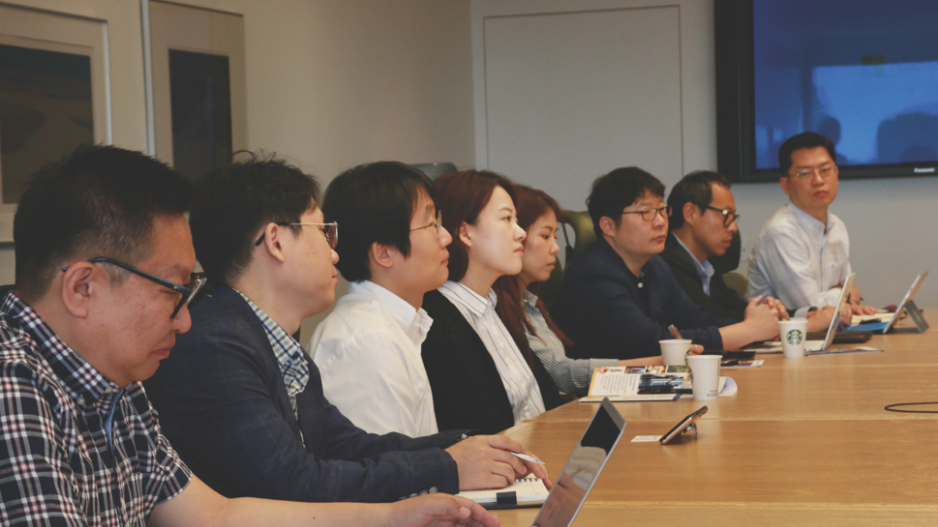Vancouver's growing reputation as a hub for virtual reality (VR) and augmented reality (AR) technology development is now drawing international interest, with a delegation of South Korean firms visiting the city to explore the possibilities for a deeper partnership.
The delegation from the Korean province of Gyeonggi, which is gaining a reputation as a Silicon Valley-like hub in East Asia, arrived May 29 for a two-day visit with the aim of finding partners for co-development of VR/AR platforms or distribution of Korean-made products and services in the North American market.
South Korean interest in B.C.’s virtual and augmented reality expertise could generate business and creative opportunities here and in Asia.
During a January trip to South Korean, B.C. premier John Horgan signed a three-year trade plan focused on the digital media sector and DigiBC, the local industry association, entered into a collaborative agreement with the government’s Gyeonggi Content Agency (GCA), which organized the delegation to B.C..
DigiBC executive director Brenda Bailey said she was pleasantly surprised at how quickly the visit came after the initial trade outreach in January.
“Often, when provincial trade delegations to a foreign market happen, there would be memorandums of understanding, but it takes some time for there to be action,” Bailey said. “So for us to have in May, after signing in January, already an esteemed delegation here in B.C. is very exciting, and it speaks well to how each country sees the opportunity on VR/AR and is moving very quickly on this interest.”
The delegation represented seven companies, mostly in the gaming and entertainment sub-sectors.
But while one provincial official agreed that most of the VR/AR momentum is on that front, he added that companies looking at B.C. for partnerships should not limit their scope to video games and digital media made for recreational consumption.
“I think most people associate VR/AR with games and entertainment, but we see huge industrial applications in health care, mining, agri-foods and in all areas of industry,” said Brian Krieger, assistant deputy minister with the B.C. Ministry of Jobs, Trade and Technology.
B.C.’s VR/AR sector is made up of roughly 150 companies, with as many as 17,000 employees working in the industry.
In addition to showcasing Korean technologies in hopes of gaining distribution deals, the delegation is also pushing its Next Reality Partners (NRP) AR/VR startup incubator program, which is seeking international firms that may be looking at developing their products in Korea.
Lee Sangwon, manager at GCA and the Korean delegation leader, said Canada is one of only three markets – the other two are Great Britain and Dubai – that the program has identified in its first step to attract AR/VR development talent to Korea.
“When we approached the Korean companies on getting into business with Canada, most of the companies in Gyeonggi province mentioned Vancouver because of the reputation in VR/AR development,” Lee said. “So the urge to work with Vancouver is not coming from the Korean government, but rather the companies themselves who want this market.”
He added that, since the Korean government believes that VR/AR development is still on the upswing, more global partners will want to get onboard with NRP, which would boost Korean tech-sector innovation in a highly competitive global marketplace.
Korean officials in B.C. have been actively pushing for more trade and investment between the two markets through the concept of “anchoring,” or joining forces to enter a third market where Korea and B.C.’s combined advantage can be exploited.
Gunn Kim, South Korea’s consul general in Vancouver, said he is glad Korean industry sees Vancouver as a potential gateway to North America, while adding that B.C. firms wanting to access markets in Asia should reciprocate through programs like NRP.
“We have cases of success in the past,” Kim said, noting Korean mobile game publisher Netmarble’s acquisition of Kabam’s Vancouver studio in 2016, as well as the Samsung Research Institute in the Lower Mainland.•




